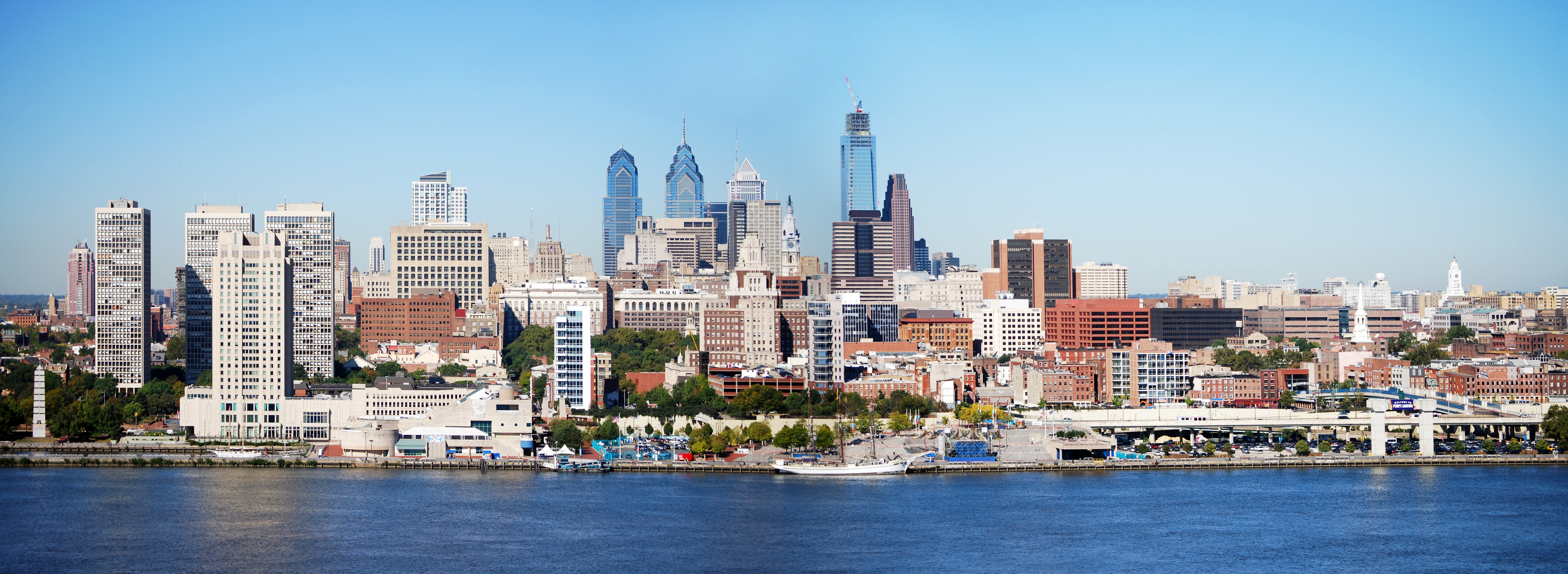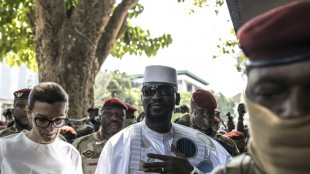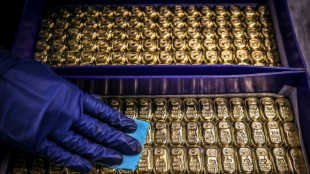Europe to offer Iran 'diplomatic solution' to war with Israel
European powers hope to offer a "diplomatic solution" to end the Iran-Israel war at talks in Geneva with Iran's foreign minister, French President Emmanuel Macron said Friday.
It comes as US President Donald Trump mulls the prospect of entering a war now in its second week.
Israel, saying Iran was on the verge of developing nuclear weapons, launched a massive wave of strikes a week ago, triggering an immediate retaliation from Tehran.
French Foreign Minister Jean-Noel Barrot will meet his Iranian counterpart Abbas Araghchi in Geneva "to make a complete diplomatic and technical offer for negotiations", Macron told reporters.
France and its allies Germany and Britain were "putting a diplomatic solution on the table", he added.
On the ground, Israel's military said it struck dozens of targets in Tehran overnight, including what it called a centre for the "research and development of Iran's nuclear weapons project".
In Israel, sirens sounded after missiles were launched from Iran, the army said, while police said they, emergency response teams and bomb disposal experts were operating "at the site of a projectile impact" in a southern city.
Trump has said he would decide "within the next two weeks" whether to involve the United States in the fighting.
Israel, the United States and other Western powers accuse Iran of seeking an atomic weapon, a charge that it denies.
Iran had been enriching uranium to 60 percent -- far above the 3.67-percent limit set by a 2015 deal, but still short of the 90 percent needed for a nuclear warhead.
- 'A window now exists' -
Britain's Foreign Secretary David Lammy said "a window now exists within the next two weeks to achieve a diplomatic solution", while agreeing with US Secretary of State Marco Rubio that "Iran can never develop or acquire a nuclear weapon".
German Foreign Minister Johann Wadephul said the United States was both aware and supportive of the meeting taking place in Geneva.
"Iran should be mindful that it needs to show a new level of seriousness and trustworthiness if it wants to avoid a prolongation" of the war," he said.
France's foreign ministry spokesperson Christophe Lemoine said the diplomatic route would be the only way to ensure Iran respects its obligations under the nuclear Non-Proliferation Treaty.
"Military solutions are not long-term solutions," he told French radio station Cnews.
Iran's Araghchi, however, rejected any prospect of talks with the United States so long as Israel continues its attacks.
"The Americans have repeatedly sent messages calling seriously for negotiations. But we have made clear that as long as the aggression does not stop, there will be no place for diplomacy and dialogue," he said.
Araghchi is also due to address the UN Human Rights Council Friday, the body's spokesman said.
- 'Speculation' -
The UN Security Council is also due to convene on Friday for a second session on the conflict, which was requested by Iran with support from Russia, China and Pakistan, a diplomat told AFP on Wednesday.
Speaking to CNN, chief of the International Atomic Energy Agency Rafael Grossi said that while Iran is the world's only non-declared nuclear power to enrich uranium to 60 percent, there was currently no evidence it had all the components to make a functioning nuclear warhead.
"So, saying how long it would take for them, it would be pure speculation because we do not know whether there was somebody, you know, secretly pursuing these activities," Grossi said.
"We haven't seen that and we have to say it."
White House Press Secretary Karoline Leavitt said Iran was "a couple of weeks" away from producing an atomic bomb.
"If there's a chance for diplomacy the president's always going to grab it, but he's not afraid to use strength as well," Leavitt said.
Any US involvement in Israel's campaign would be expected to involve the bombing of a crucial underground nuclear facility in Fordo, using powerful bunker-busting bombs that no other country possesses.
- 'Collateral damage' -
Israel's Prime Minister Benjamin Netanyahu, who supports the prospect of US involvement in the war, has sworn Iran will pay a "heavy price" after 40 people were wounded and several hospital wards destroyed in a missile attack.
World Health Organization director-general Tedros Adhanom Ghebreyesus called attacks on health facilities "appalling", while UN rights chief Volker Turk said civilians were being treated as "collateral damage".
In Iran, people fleeing Israel's attacks described frightening scenes and difficult living conditions, including food shortages and limited internet access.
"Those days and nights were very horrifying... hearing sirens, the wailing, the danger of being hit by missiles," University of Tehran student Mohammad Hassan told AFP, after returning to his native Pakistan.
Protests broke out in Tehran and other cities after Friday prayers, with demonstrators chanting slogans in support of their leaders, state television showed.
The death toll in Israel from Iranian missile strikes since June 13 was 25 people, according to authorities.
Iran said on Sunday that Israeli strikes had killed at least 224 people, including military commanders, nuclear scientists and civilians.
burs-ser/jsa/dcp
A.Anderson--PI



